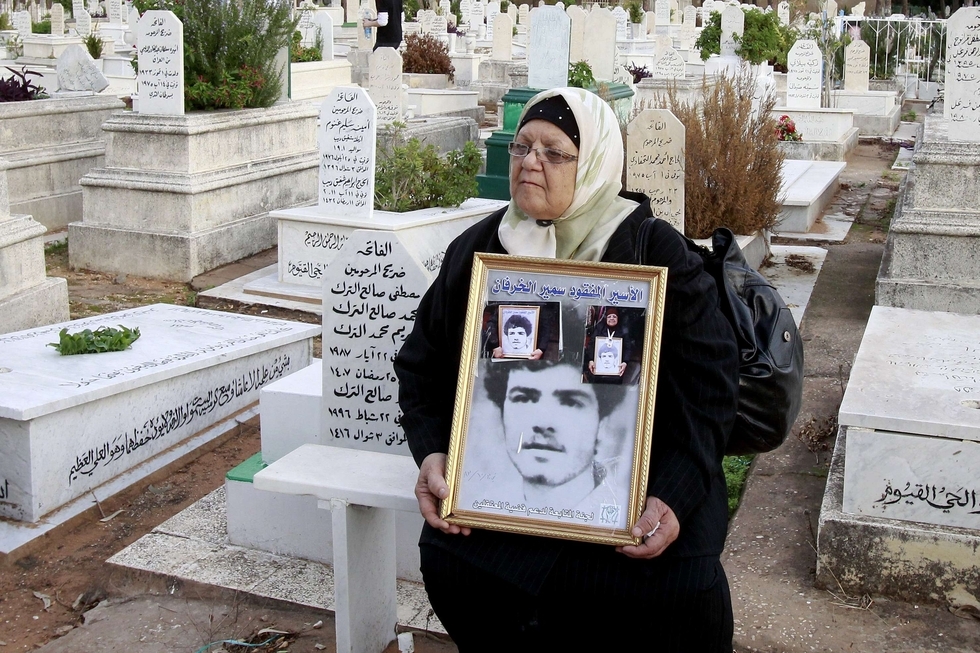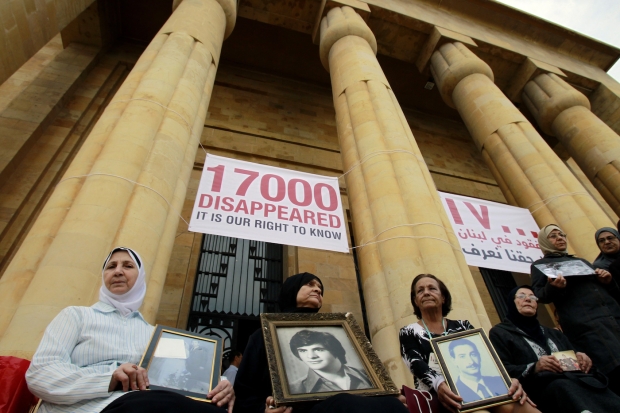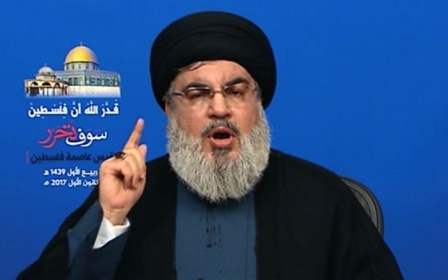Lebanon passes law to investigate fate of thousands missing since civil war

Lebanon has passed a law to investigate the fate of thousands of people who disappeared during the country's bloody civil war, a move that answers a longstanding demand from human rights groups and families looking to heal.
Around 17,000 people are believed to have been "kidnapped or 'disappeared'" during the 1975-1990 conflict in Lebanon, human rights groups estimate, and there have been repeated calls for a law to help bring answers to their families.
The Lebanese parliament passed Law 19 "linked to the forcibly disappeared" on Monday, Lebanon's state news agency NNA reported.
The law will set up an official commission of inquiry to look into what happened to those who were forcibly disappeared.
It also gives the families the right to know their loved-ones' whereabouts or place of burial, as well as the right to exhume their bodies and identify them.
Gebran Bassil, the country's foreign minister, tweeted that "for the first time after the war, Lebanon enters a genuine reconciliation phase, to heal the wounds and give families the right to know".
The law also stipulates that those responsible for forced disappearances can be punished by up to 15 years in jail and a fine of up to 20 million Lebanese pounds (around $13,000).
Several former warlords who were active during the Lebanese civil war remain active in the country's current political system.
Human rights groups that have been campaigning for justice for the victims and their families applauded the new bill.
"This is a positive step for thousands of families to find closure," the International Committee of the Red Cross (ICRC) said in a statement on Twitter.
"We stand ready to support the government in the implementation of the law so that families can finally have the answers they've long waited for."
Since 2016, the ICRC has compiled biological reference data, to be used to compare DNA samples, from the relatives of the disappeared.
In the 2000s, commissions of inquiry were established by ministerial decree to look into what happened to Lebanon's disappeared people, but they failed to bring any answers to the families.
According to Amnesty International, local and international organisations have identified mass graves, but the Lebanese authorities have previously refused to protect the sites against tampering.
Lebanon has been rocked by a series of political crises in recent years, aggravated by the civil war in neighbouring Syria.
The law on the disappeared people was passed by Lebanon's first new parliament in nine years and comes as premier-designate Saad Hariri has spent five months struggling to form a cabinet.
Middle East Eye propose une couverture et une analyse indépendantes et incomparables du Moyen-Orient, de l’Afrique du Nord et d’autres régions du monde. Pour en savoir plus sur la reprise de ce contenu et les frais qui s’appliquent, veuillez remplir ce formulaire [en anglais]. Pour en savoir plus sur MEE, cliquez ici [en anglais].





